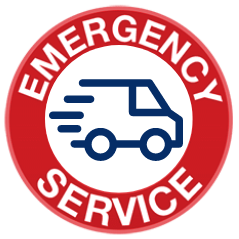The air you breathe in your home in Milton, GA, can have a big impact on your health and comfort. Poor indoor air quality can cause a range of issues, such as headaches, dry skin, respiratory problems or even cancer in the long term. Here is how you can tell if your indoor air needs improvement.
Strange Odors
It goes without saying that your home should have a pleasant, fresh scent because that’s where you spend most of your time. Damp, musty smells indicate a lack of airflow and the presence of moisture in your house – a combination that’s very hazardous.
Weird smells can also come from chemical contaminants, dust buildup and pet dander. In any case, it’s important to check the source of these odors as quickly as possible with a qualified air quality expert.
Health Issues
Stuffy indoor air can cause breathing difficulties and make it harder for you to perform your usual daily activities. Poor ventilation can also lead to the buildup of carbon dioxide indoors, weakening your immune system over time.
If you constantly feel tired or develop headaches or bouts of dizziness in your home or workspace, that’s a sign that you need to improve your indoor airflow. And, if you’re dealing with a high concentration of allergens in your house, consider investing in an air purifier or a filtration system.
High Humidity Levels
Indoor humidity levels should range from 45% to 55%. Anything above 55% is a problem since it creates the perfect breeding ground for harmful microorganisms. To combat this issue, you can start by investing in a dehumidifier or using portable fans to improve air circulation.
Quality indoor air is a nonnegotiable necessity for your home. If you’re experiencing any of the above-mentioned signs, call E. Smith Heating & Air Conditioning today for an indoor air quality evaluation and tailored solutions to ensure a comfortable and healthy indoor environment for you and your family.
Image provided by iStock


